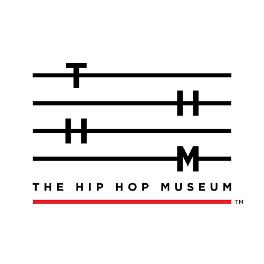For aspiring musicians, producers, and engineers, having the right tools and resources is crucial to developing your craft and building a successful career.
With the ever-growing availability of technology, educational resources, and software, you can create high-quality music from almost anywhere. This guide will cover the essential tools and resources you need, including courses to boost your skills, whether you’re just starting or looking to level up.
1. Digital Audio Workstations (DAWs)
A Digital Audio Workstation (DAW) is at the heart of modern music production. These software platforms allow you to record, edit, and produce music digitally. Choosing the right DAW depends on your specific needs, workflow preferences, and budget. Here are a few of the most popular DAWs:
• Ableton Live: Known for its seamless integration with electronic music and live performance, Ableton Live is a favorite among producers for its intuitive interface and powerful tools. It offers excellent MIDI functionality and sound design capabilities.
• Logic Pro X: A go-to DAW for many professionals, especially in pop and film scoring, Logic Pro X offers a user-friendly interface and a robust suite of stock plugins, instruments, and effects.
2. Audio Interfaces
To record high-quality audio, you’ll need an audio interface. This device allows you to connect microphones, instruments, and monitors to your computer, translating analog sound into digital files for editing in your DAW. Popular audio interfaces include:
• Focusrite Scarlett 2i2: One of the most popular and affordable options for beginners, it offers great sound quality and enough inputs for most small-scale projects.
• Universal Audio Apollo Twin: A higher-end interface that comes with built-in digital signal processing (DSP) for running plugins in real time. Ideal for musicians and engineers looking for professional-grade recordings.
• PreSonus AudioBox: Affordable and reliable, the PreSonus AudioBox is excellent for beginners and comes bundled with useful software tools.
3. Microphones
Investing in a quality microphone is crucial for recording vocals or acoustic instruments. There are two main types to consider:
• Condenser Microphones: Ideal for vocals and delicate instruments like acoustic guitars, condenser mics are sensitive and provide a wide frequency response. The Audio-Technica AT2020 and Rode NT1-A are excellent options for home studio use.
• Dynamic Microphones: Great for capturing louder sources like electric guitar amps or live performances, dynamic mics are durable and versatile. The Shure SM57 and Shure SM7B are industry standards.
4. Online Courses and Educational Resources
Learning is an ongoing process in music, and the internet provides endless educational opportunities. Whether you’re looking to sharpen your production skills, improve your musicianship, or dive deeper into audio engineering, joining an expert music making course should be on your to-do list.
5. Music Theory and Composition Tools
Understanding music theory will greatly enhance your ability to create cohesive and emotionally engaging music. Here are some essential tools and resources:
• Hooktheory: An intuitive platform that breaks down music theory and helps you learn songwriting and chord progressions. It’s perfect for beginners who want to understand the structure behind their favorite songs.
• Sibelius: For composers, Sibelius is the industry-standard notation software, allows you to write, edit, and share sheet music. It’s great for orchestral work, film scoring, or anyone who prefers composing music traditionally.
• Noteflight: A browser-based tool for creating, sharing, and collaborating on sheet music. It’s a simpler and more affordable alternative to Sibelius, ideal for beginners.
Conclusion
Building a career as a musician, producer, or engineer requires more than just talent—it requires the right tools and resources to bring your ideas to life. Investing in essential hardware like DAWs, microphones, and studio monitors, as well as educational resources like online courses and sample libraries allows you to develop your skills and create professional-grade music from anywhere. You’ll be well-equipped to make your mark in the music industry with dedication, creativity, and the right tools.







